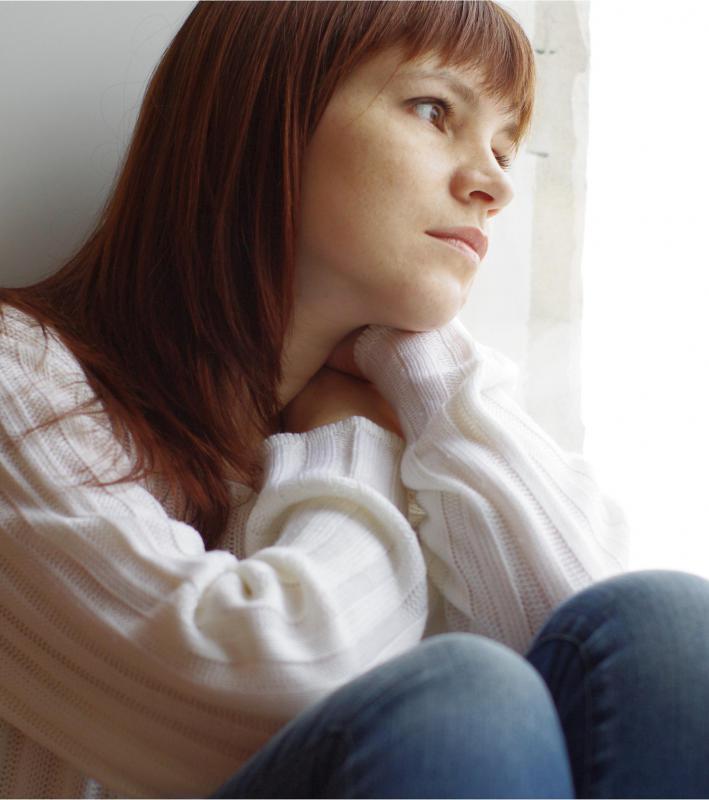At WiseGEEK, we're committed to delivering accurate, trustworthy information. Our expert-authored content is rigorously fact-checked and sourced from credible authorities. Discover how we uphold the highest standards in providing you with reliable knowledge.
What is the Connection Between Hormones and Depression?
Several factors point to a connection between hormones and depression. The most compelling link comes from the fact that the risk for depression is greater during times of hormone imbalance, especially for women. Experts have yet to determine the exact relationship of hormones and depression, but studies have shown that hormones play a role in depression and related symptoms.
Although several hormones are suspected to be connected to depression, two of the most common are estrogen and progesterone. Both occur naturally in the female body, and deficiencies seem to cause depression or depressive symptoms. Women exhibit depression more frequently after childbirth and during menstruation, premenopause and menopause, all of which are times when the body is undergoing extreme hormone imbalance. The specific cause and effect correlation between hormones and depression is unknown, but statistics have shown that depression occurs more frequently when hormones are out of balance.

Approximately 80 percent of new mothers experience some level of depression after giving birth. The so-called “baby blues,” a common and minor form of depression, have long been linked to the fluctuating hormonal conditions that occur after a woman has a child. In most cases, the hormones return to normal within a few weeks and the depressive symptoms disappear on their own. An estimated 15 percent of women suffer from a much more severe condition known as postpartum depression. This is linked to hormone imbalance as well, but other factors likely contribute to this major depression, and treatment is required.

Depression also occurs more frequently in women who are going through menopause, with about 10 percent suffering from major depression. Estrogen levels begin to decline during menopause, and this deficiency is thought to lead to depression. Women who receive hormone therapy during menopause have proved to be less likely to suffer from depression. The direct bond between hormones and depression during menopause is unknown, but normal hormone levels seem to discourage the development of depression.

Hormones and depression are also connected by the thyroid. The thyroid regulates hormone production in men and women, and some cases of depression are thought to be associated with thyroid malfunction. Depression and a thyroid condition have similar symptoms, and hormone therapy might regulate thyroid function and associated depressive behaviors.
Blood tests can reveal a hormone imbalance in patients who suffer from depression. When hormonal abnormalities occur along with depression, doctors might add hormones to traditional treatment programs. Research has shown that problems with hormones and depression can be corrected by combining hormone therapy with antidepressants and behavioral or talk therapy. Hormones have been used alone to treat depression with some success. As with any medical condition, a professional opinion is advised before a person undergoes any procedure or treatment.
AS FEATURED ON:
AS FEATURED ON:














Discuss this Article
Post your comments